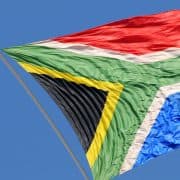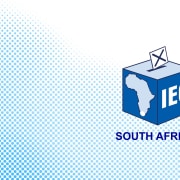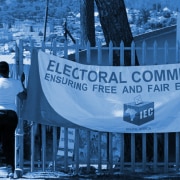|
Getting your Trinity Audio player ready...
|
Voters go to the polls on 29 May to make their mark in what is arguably the most significant and hotly contested general elections of the democratic South African era.
With the governing party teetering on the brink of losing its majority, there is a real sense that this time around, we can make a difference – but only if we take action and vote.
In this year voters will see three ballot papers rather than the two they are used to. The reason for this lies in the Electoral Amendment Act (EAA), which was signed into law in April 2023 and has already gone through some changes. The EAA amends the 1998 Electoral Act, allowing independent candidates to contest provincial and national elections in terms of a Constitutional Court judgment handed down in June 2020. The judgment ruled the Electoral Act as unconstitutional, as candidates could only contest elections by way of membership of a political party.
However, the initial requirements for independents were onerous and frankly, impractical – requiring candidates to gather signatures from 15% of the people in the areas where they reside. This was also unfair because the quota varied from province to province – in Gauteng almost 14 000 signatures were needed, while just over 10 000 were needed in the Northern Cape. The Constitutional Court struck down this requirement in December, ruling that only 1 000 signatures are needed regardless of the province.
This is where the third ballot paper comes in, appearing alongside the national ballot for Parliament’s National Assembly (NA) and the provincial ballot for a province’s legislature.
It is for independent candidates and is known as the regional ballot, referring to the 200 seats reserved in the NA for political parties only, and the remaining 200 which is divided between the nine regions (provinces) and contested by both parties and independents.
According to the Independent Electoral Commission (IEC), voters will receive:
- A national ballot for the election of the compensatory 200 members of the NA, which is only contested by political parties on a closed list basis. This ballot is the same for the whole country.
- A regional ballot for the regional elections of the 200 members of the NA. This ballot will vary from region to region, depending on which parties and independent candidates contest the relevant regional election. Only the names of political parties and independent candidates that have met the requirements to contest each regional election will appear on this ballot.
- A provincial ballot for electing the members of the provincial legislature in each province. It contains the names of the political parties and independent candidates that have met the requirements to contest each provincial election, and will vary from province to province.
“Because a region refers to the same territorial area as a province, the terms ‘regional’ and ‘provincial’ are simply to distinguish between the seats reserved for that region in Parliament (regional seats) and seats in the provincial legislatures of that province (provincial seats).”
Voters’ roll open for inspection
Meanwhile, the IEC has announced that electronic copies of the provisional voters’ roll for the 2024 national and provincial elections are available for inspection during working hours between 26 February 2024 and 4 March 2024. Anyone wishing to take advantage of this opportunity must present themselves between 09h00 and 17h00 at the IEC’s head office and its provincial and local offices.
“Those who wish to object to the inclusion or exclusion of a voter on the voters’ roll must do so by 4 March 2024. The objections received on or before 4 March 2024 will be considered, investigated and determined by the Commission by 11 March 2024.”
Objections to the voters’ roll are governed by the law, the IEC says. “As such, both the procedural as well as the substantive requirements of Section 15 of the Electoral Act must be satisfied when lodging an objection. The pertinent aspects in this regard, include outlining the relief sought and establishing the basis for such relief as well as serving the objection on the person against whom the objection is raised.”
Once the voters’ roll objections have been satisfactorily dealt with, the IEC’s chief electoral officer will certify the voters’ roll on 12 March 2024. “Electronic copies of the certified voters’ roll will be made available to contestants and a printed copy will be prepared for use in voting stations on election day.”








